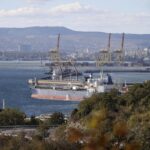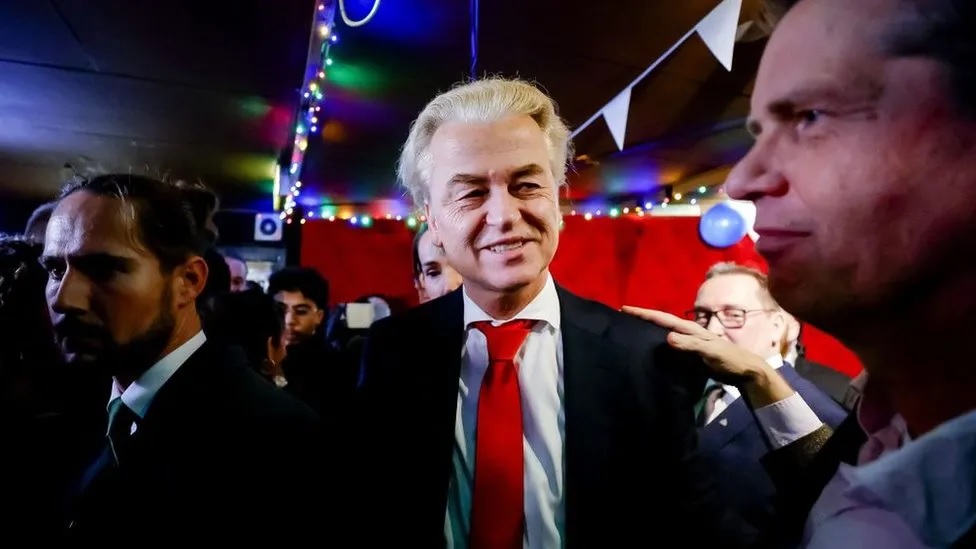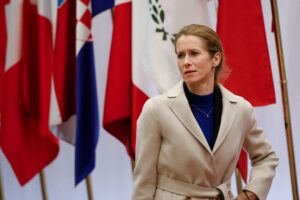The unexpectedly meaty win for controversial, hard-right politician Geert Wilders in Wednesday’s general election in the Netherlands set international headlines on fire.
Right-wing nationalists across Europe rushed to congratulate the populist politician, sometimes dubbed the Dutch Trump – partly for his dyed, bouffant-like hairdo, and partly for his famously firebrand rhetoric.
Geert Wilders’ publicly expressed views – including linking Muslim immigration with terrorism and calling for a ban on mosques and the Quran – are so provocative that he has been under tight police protection since 2004.
Wilders was convicted of inciting discrimination, although later acquitted, and he was refused entry to the UK back in 2009.
But Europe’s far right believes their views have now become more mainstream.
“The winds of change are here!” proclaimed Hungary’s Prime Minister, Viktor Orban, after seeing the Dutch election results. He, like Geert Wilders, is big on anti-immigration themes, as well as Brussels-bashing Euroscepticism.
Far-right Flemish independence leader Tom Van Grieken, who hopes for a similar election breakthrough in Belgium to Geert Wilders in the Netherlands, was quick to conclude: “Parties like ours are on their way in the whole of Europe.”
So, what impact can we expect not only on Dutch but also (and this has the Eurocrats rather anxiously pacing the halls at time of writing), on broader European politics?
Is Geert Wilders’ success as clear-cut as it seems?
In fact, not even the man himself expected to win as many parliamentary seats. You can see his dance of surprised delight in a social media video of him watching results come in on Wednesday.
Wilders’ team reportedly only rented a room to use as a party HQ for election night three days beforehand. His Freedom Party surged in the polls very late in the campaign.
What appears to have attracted Dutch voters was a mixture of:
- Wilders’ focus on restricting immigration, battling the Dutch housing crisis and improving health services. He toned down his anti-Muslim rhetoric as the election approached
- His polished performance in TV debates compared to his rivals
- Mainstream political parties also made immigration a centre-piece of their campaigns. This seems to have led many Dutch voters to conclude that they may as well vote for the “original”. Geert Wilders has arguably campaigned on migration the longest and the loudest on the Netherlands’ political stage.
Also helping Wilders to success, however inadvertently, was one of his rivals.
Dilan Yesilgöz-Zegerius, the leader of the centre-right VVD, opened the door during her campaign to going into coalition with Wilders. That helped soften his party’s extremist image. Until then, the Netherlands political mainstream had ruled out the idea of governing with Wilders because of the nature of his politics.
And what does all this mean for Europe?
Geert Wilders may be the leader of the Netherlands’ largest parliamentary party, but he does not have nearly enough seats to form a government alone. Weeks of political horse-trading lie ahead.
Mr Wilders has admitted he will need to compromise on some of his policies to find political bed-fellows. And at this moment in time, it is not certain that Geert Wilders will be his country’s next prime minister.
If he is, EU leaders’ summits could become tenser and more fractious – for a number of reasons.
Mr Wilders has campaigned hard to take the Netherlands out of the EU. While he openly admits the idea is not popular amongst most Dutch voters, he may well push for a “Nexit” (the Netherlands’ exit from the EU) referendum anyway.
The European Commission said on Thursday that it was not worried. It was “counting” on the Netherlands (a founding member of the EU) to continue to “strongly participate” in the bloc’s affairs, said spokesperson Eric Mamer.
But Brussels is – and should be – concerned about EU unity to support Ukraine as the months grind on since Russia’s full-scale invasion.
That support is costly.
Like the leaders of EU members Hungary and Slovakia, Mr Wilders is against sending more military aid to Kyiv.
Geert Wilders says he wants to put the Netherlands first; to “give the Netherlands back to the Dutch”. A similar refrain to Donald Trump’s Make America Great Again or Italian PM Giorgia Meloni’s cry of “Italy and the Italians first!”
He would join a chorus of voices at the leaders table, including Ms Meloni, taking a hard line on EU migration and asylum policies. Mr Wilders talks of a “migration tsunami”.
But it would be too simplistic, I believe, to conclude Geert Wilders’ election success shows far-right, hard-right, nostalgic nationalist, populist parties – there are so many labels, and this is not a one-size-fits-all debate – are “taking over Europe”, as some commentators suggest.
Poland’s Law and Justice Party just lost a general election. Spain’s Vox Party failed to perform nearly as well as predicted in Spain’s summer election. In the Netherlands, a joint ticket between Labour and the Greens performed well.
But migration, migration, migration, plus cost of living – pretty much wherever you look across Europe – are top priorities for voters.
In France, Marine Le Pen’s National Rally party performed powerfully in parliamentary elections. Germany’s far-right AfD is consistently in second and sometimes in first place in opinion polls. Austria’s Freedom Party is buoyant once more too.
These parties are making their anti-immigration stance heard loud and clear. Even if they do not make it into government, they create political pressure and are pushing those seen as more mainstream parties (like Germany’s Social Democrats in government, or Emmanuel Macron’s Renaissance Party) further to the right on immigration and security issues.
This is a pattern you see across Europe.
The European Commission would do well not to appear too dismissive of Geert Wilders, and what his election success tells us about political winds blowing across Europe.
Source : BBC











